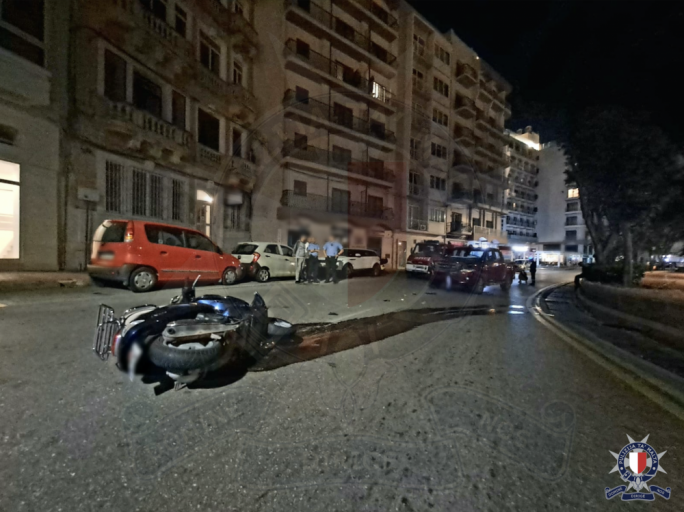A matter of life or death

The scene along the Sliema front of a Vespa scooter involved in a yet another fatal road accident is both tragic and alarming. On one hand it is further testament to the traffic crisis besetting this island and at the same time it is yet another blow for any prospect of a modal shift in transport. Anybody mulling to take the plunge to shift to some form of two-wheeled vehicle will be doing so at their own risk.
Hours prior to this fatal accident, the National Statistics Office said that between July and September of this year no less than six persons lost their lives on Maltese roads. The fact that five of the six victims were pedestrians shows that the problem is not just limited to motorists but is more widespread. Moreover, the number of fatalities is three times higher than the corresponding period of 2021. The statistics also confirms that the most at risk are those who commute by motorbikes and bicycles. While it is a known fact that such kind of vehicles offer less protections for the driver, this does should not justify the existing shortcomings of Malta’s road network with respect to two-wheeled vehicles. Transport Minister Aaron Farrugia who recently joined a group of cyclists in a ‘fact-finding’ mission can vouch for himself about the matter as he was involved in a number of close misses.
Though from time-to-time several projects are floated like the €35 million for a proper cycle lane infrastructure all over the Maltese Islands, the elephant in the room is the disproportionately high number of cars on our roads. All measures are set to fail unless the root of the problem will be tackled. At this stage we can also say that the decision to make buses free of charge has failed as commuters cannot take the risk of trying a service which during peak hours is tuck in traffic or being left waiting as the buses are running at full capacity.
So far the only possible solution is sea transport or mass transport like a metro. Commuters will only ditch their car if they have a reliable, safe and affordable alternative. In the run-up to the last general election the government presented bold plans on the matter but judging by the lack of progress registered in the aftermath it seems this was either a pre-electoral stunt or else it is having cold feet on the project. While such a plan carries a huge price tag, and will only take years to come to fruition, we are now starting to taste the price pill of doing nothing – constant gridlock, emissions, fatalities and a lower quality of life. Doing nothing has truly become a matter of life or death.
